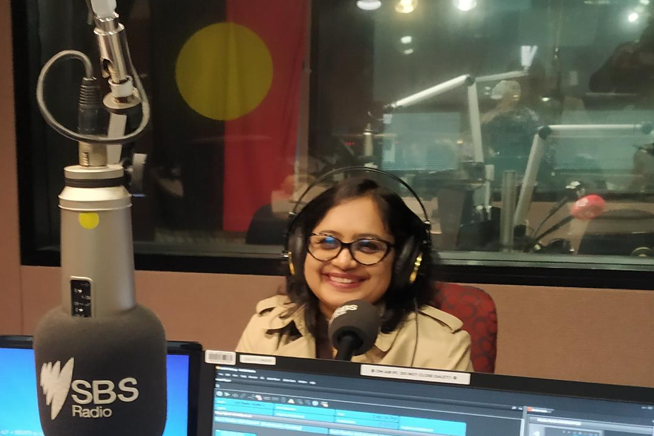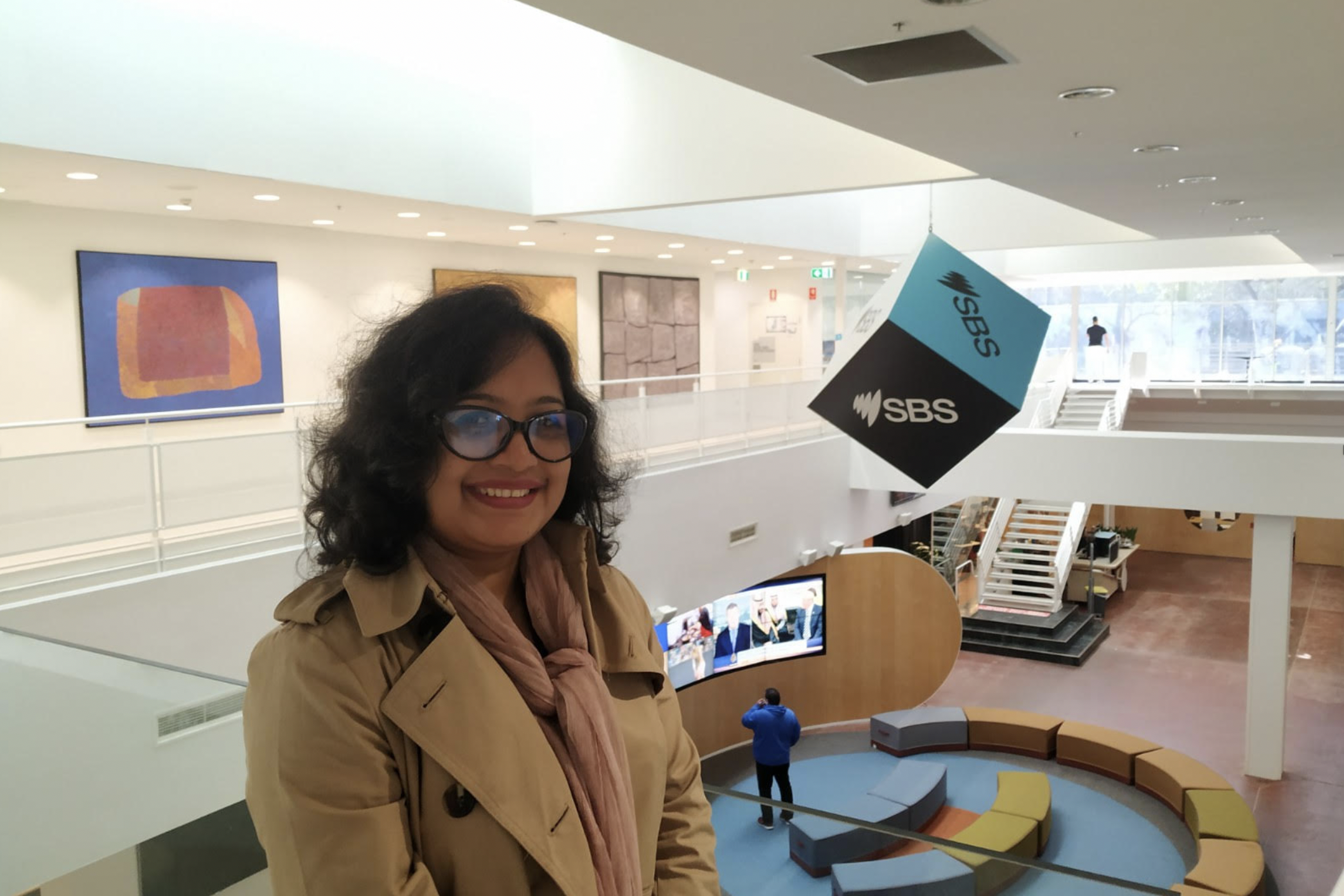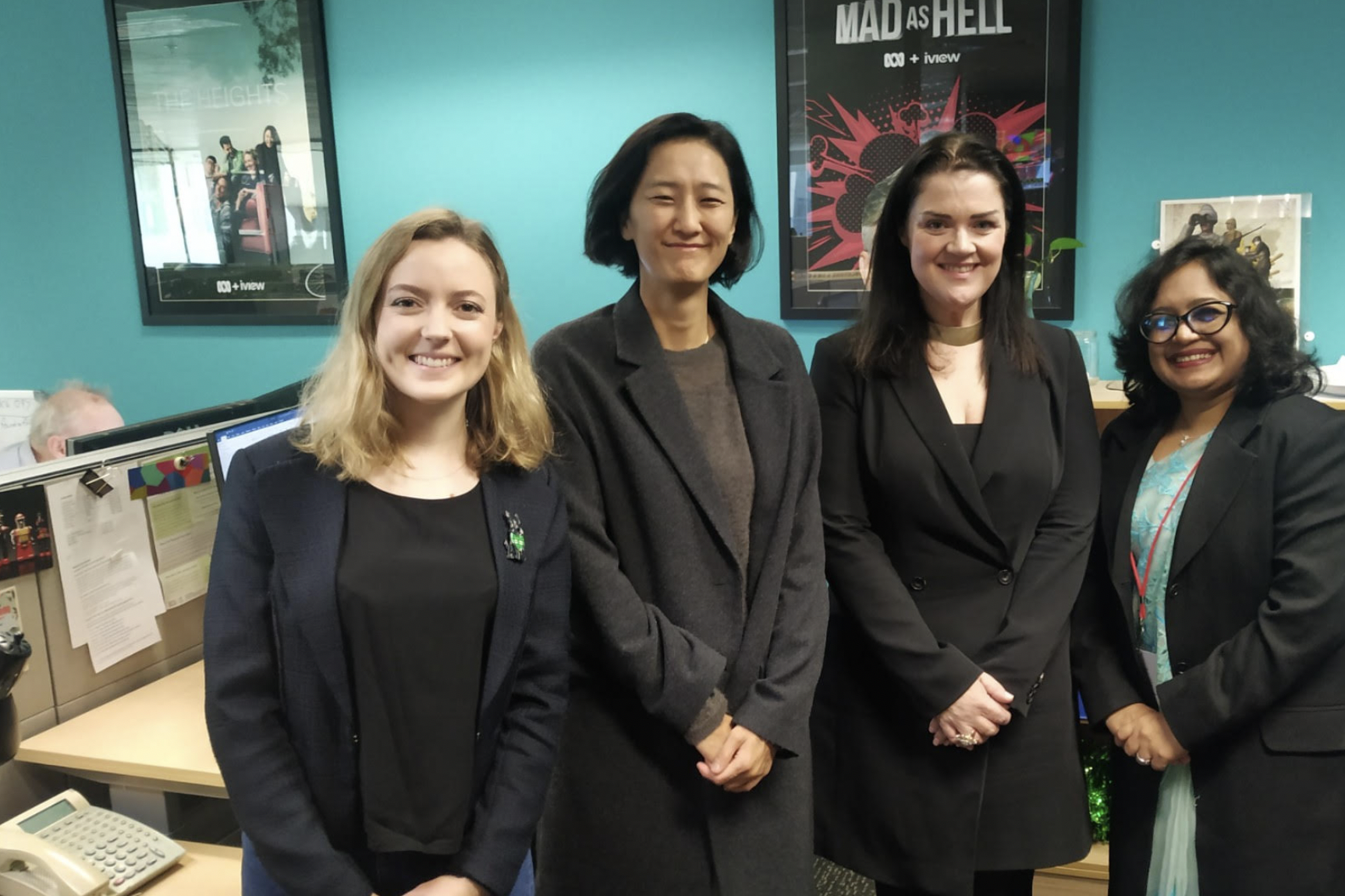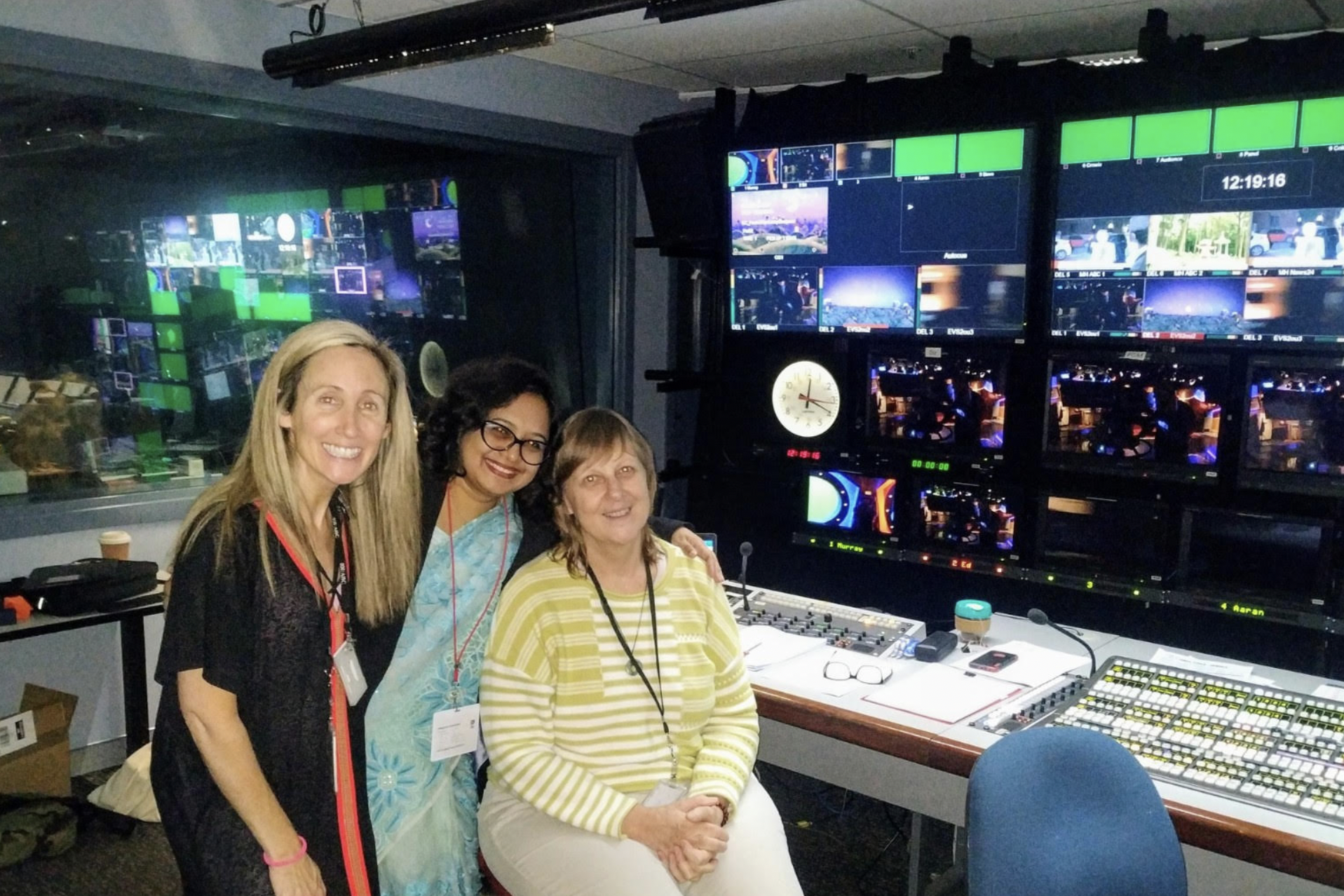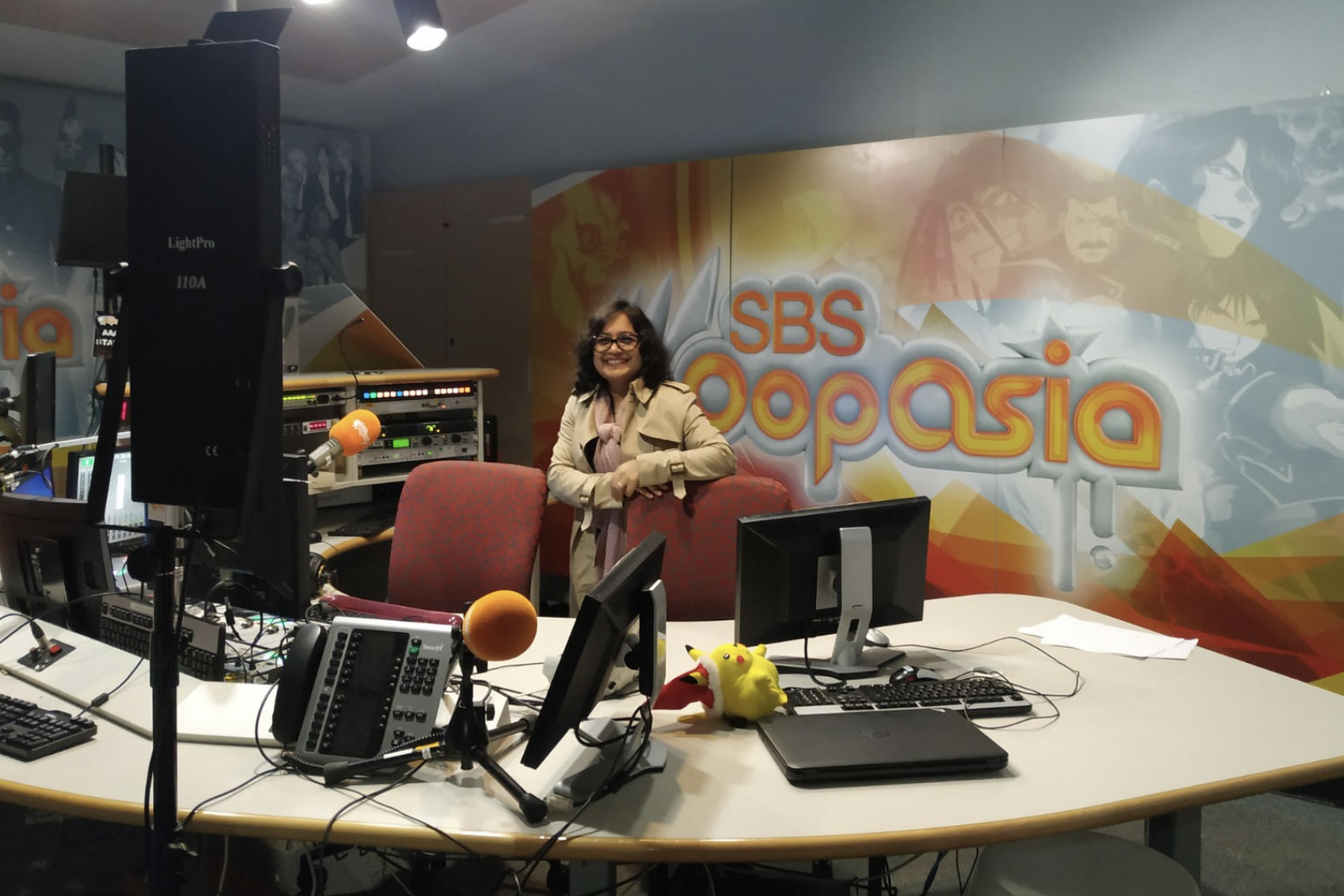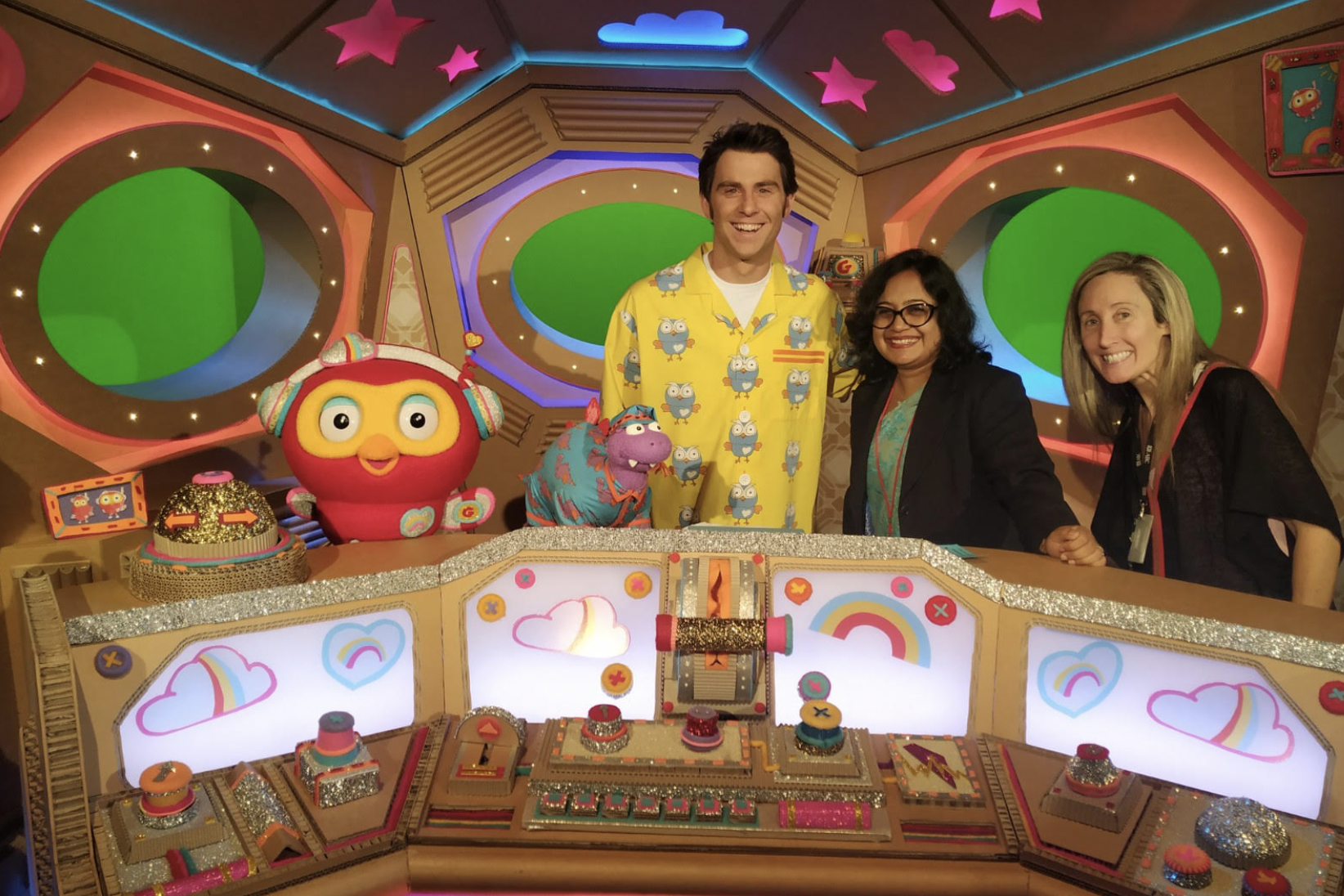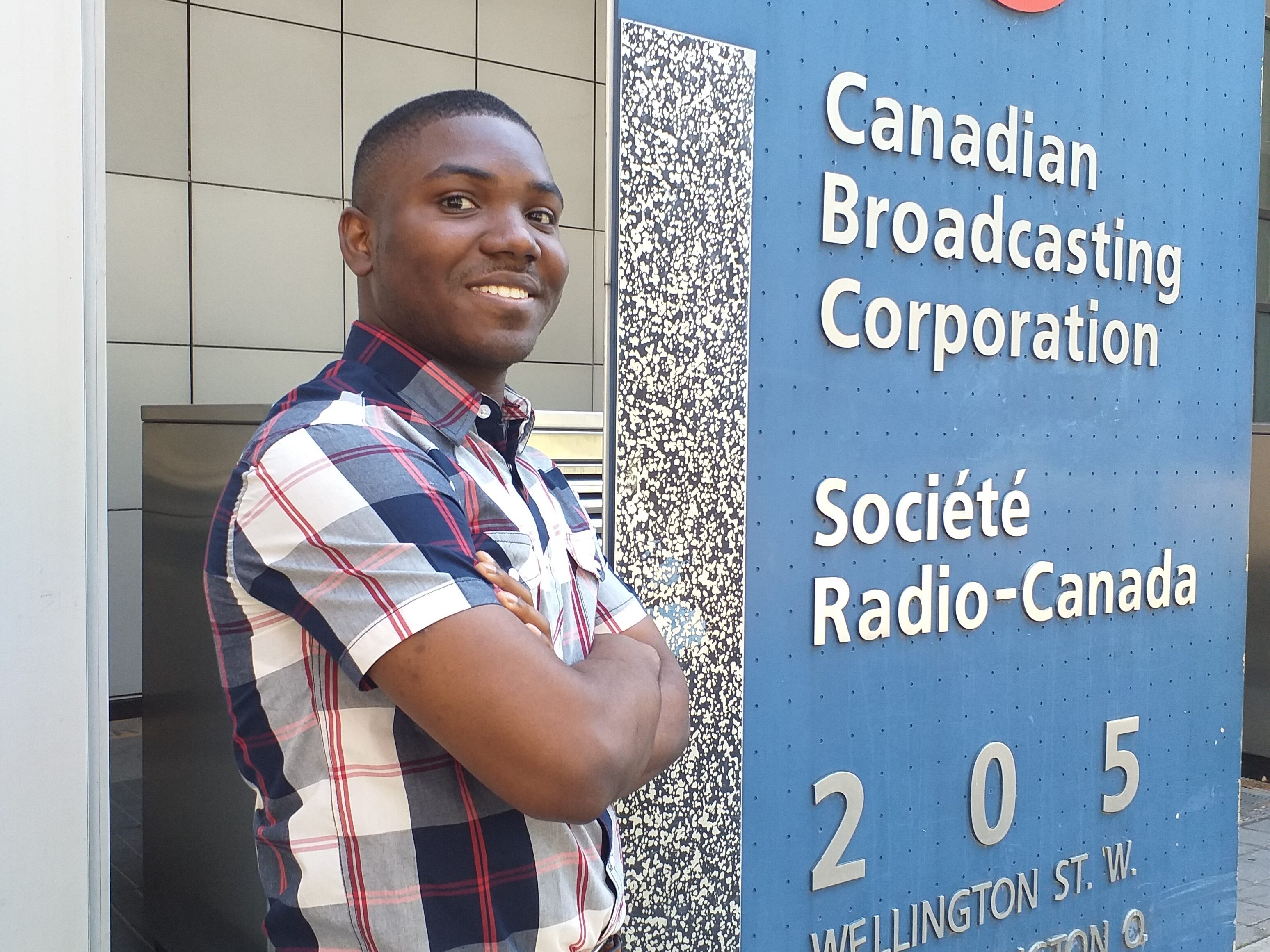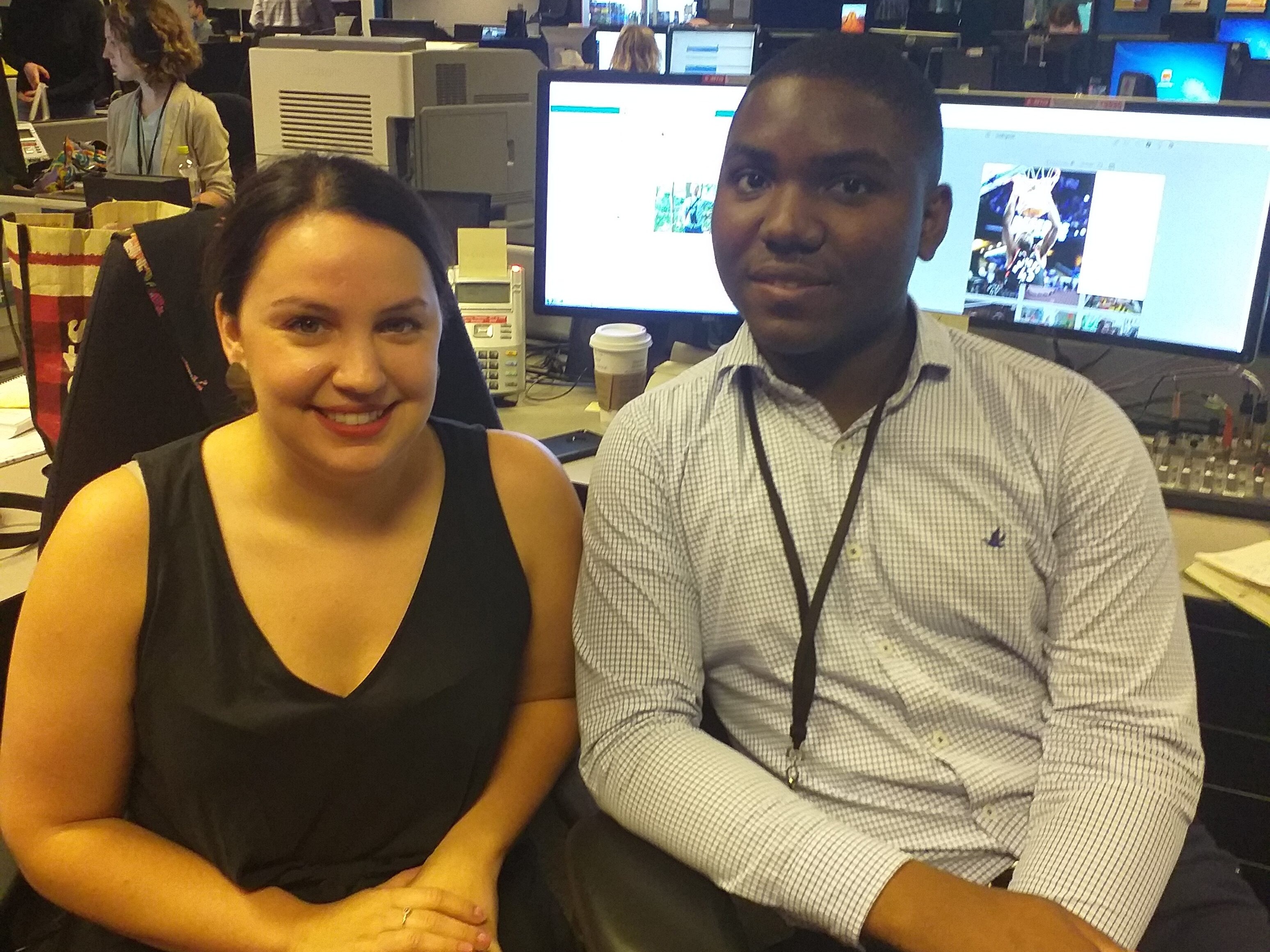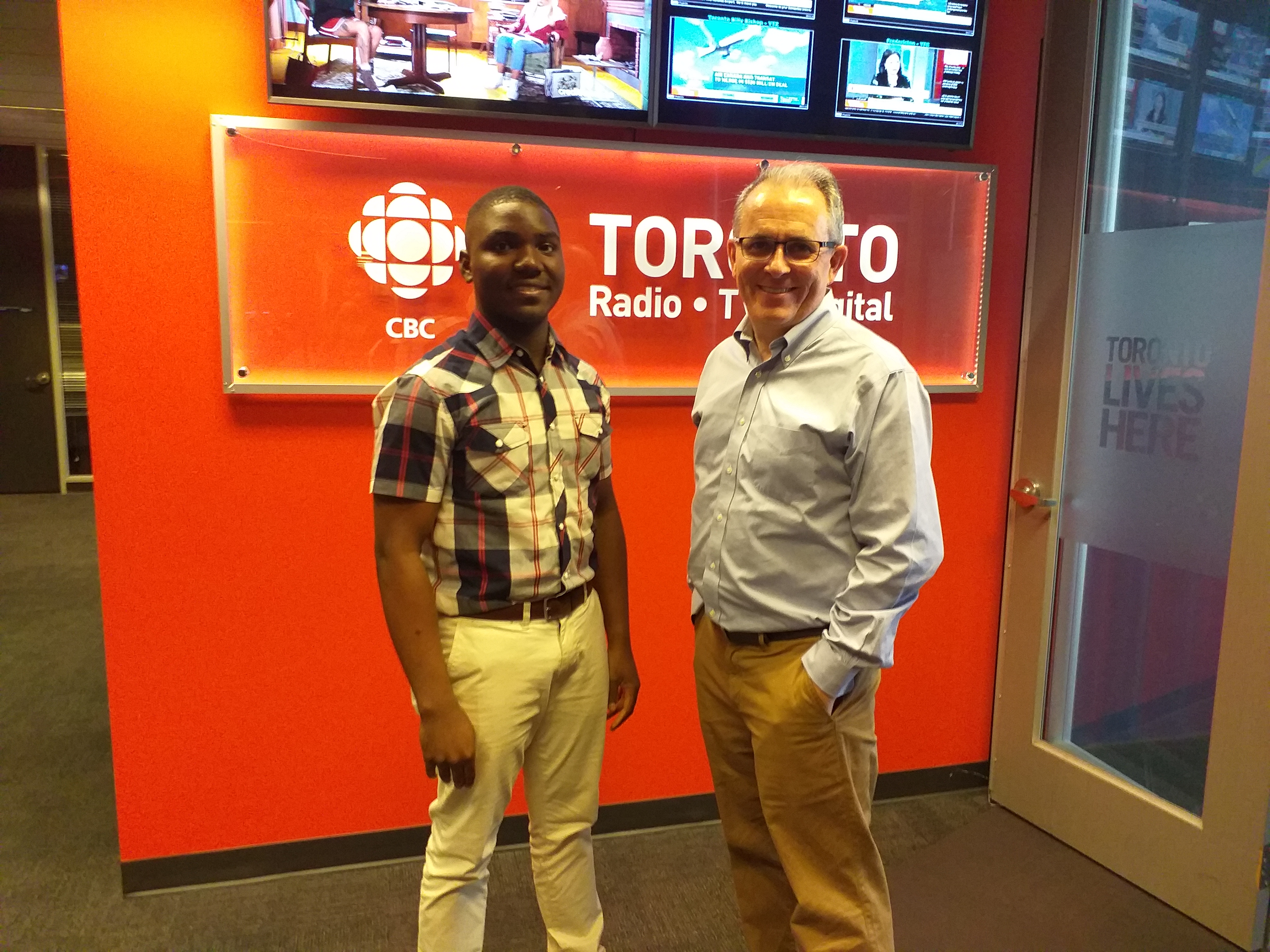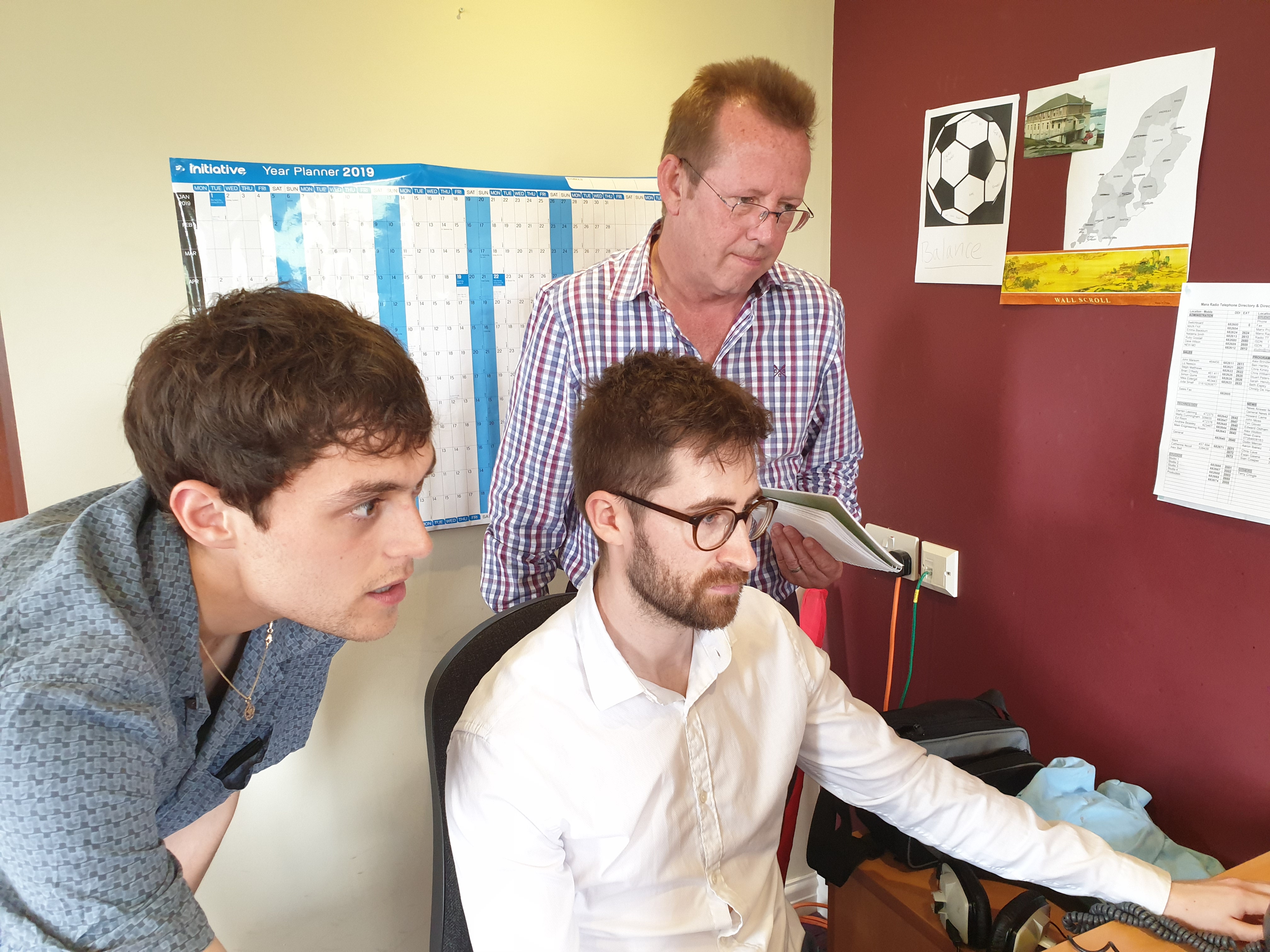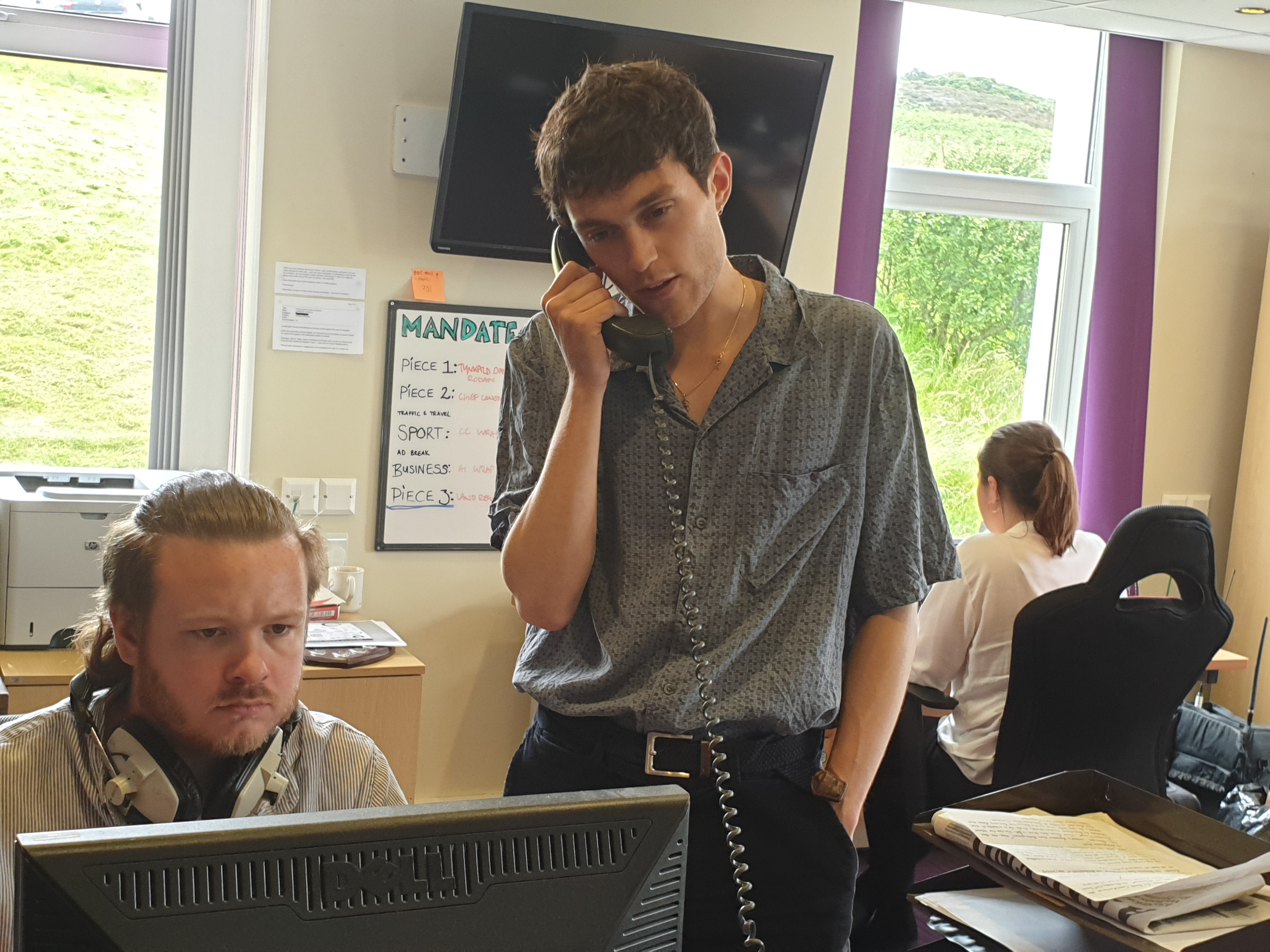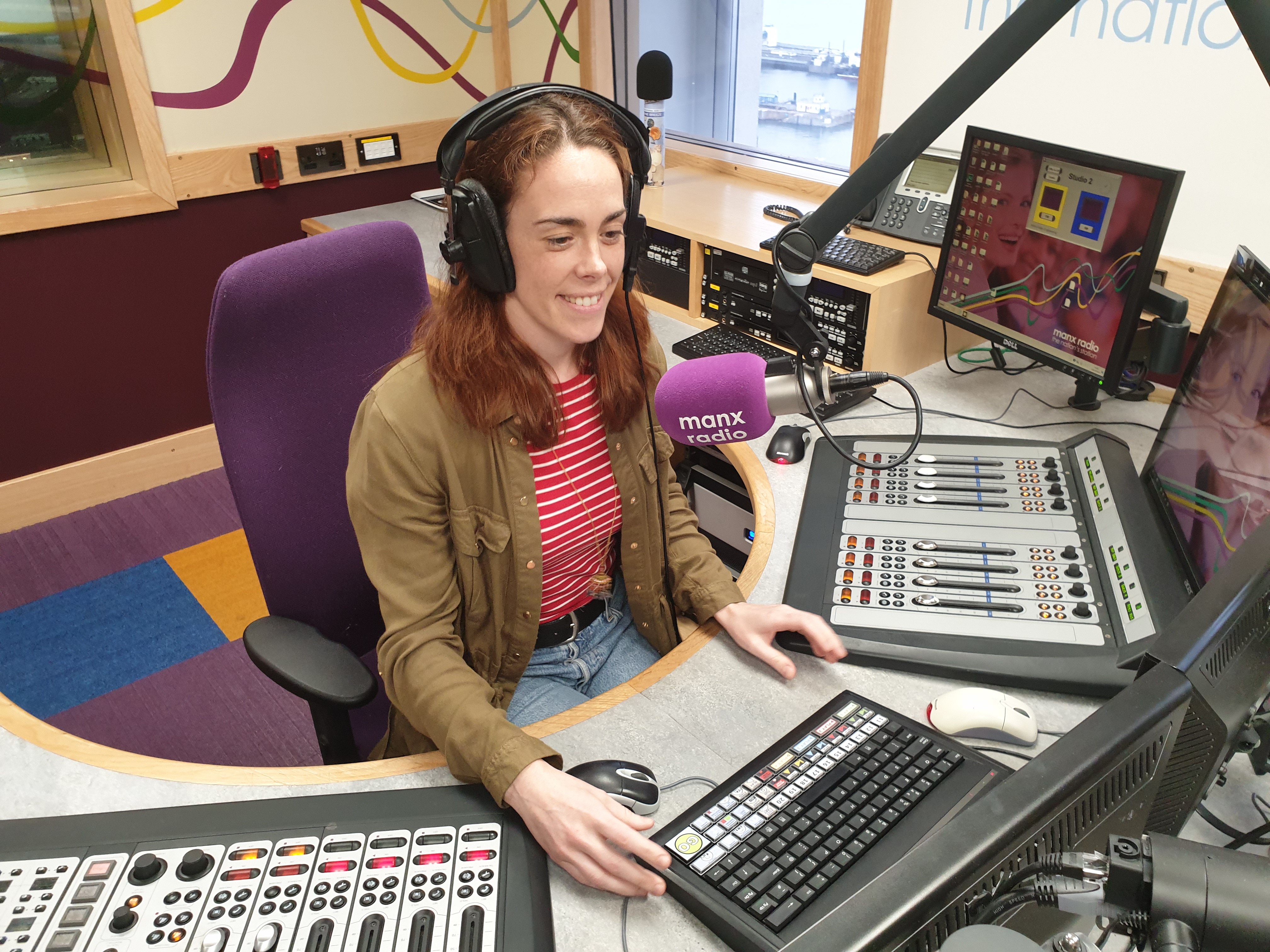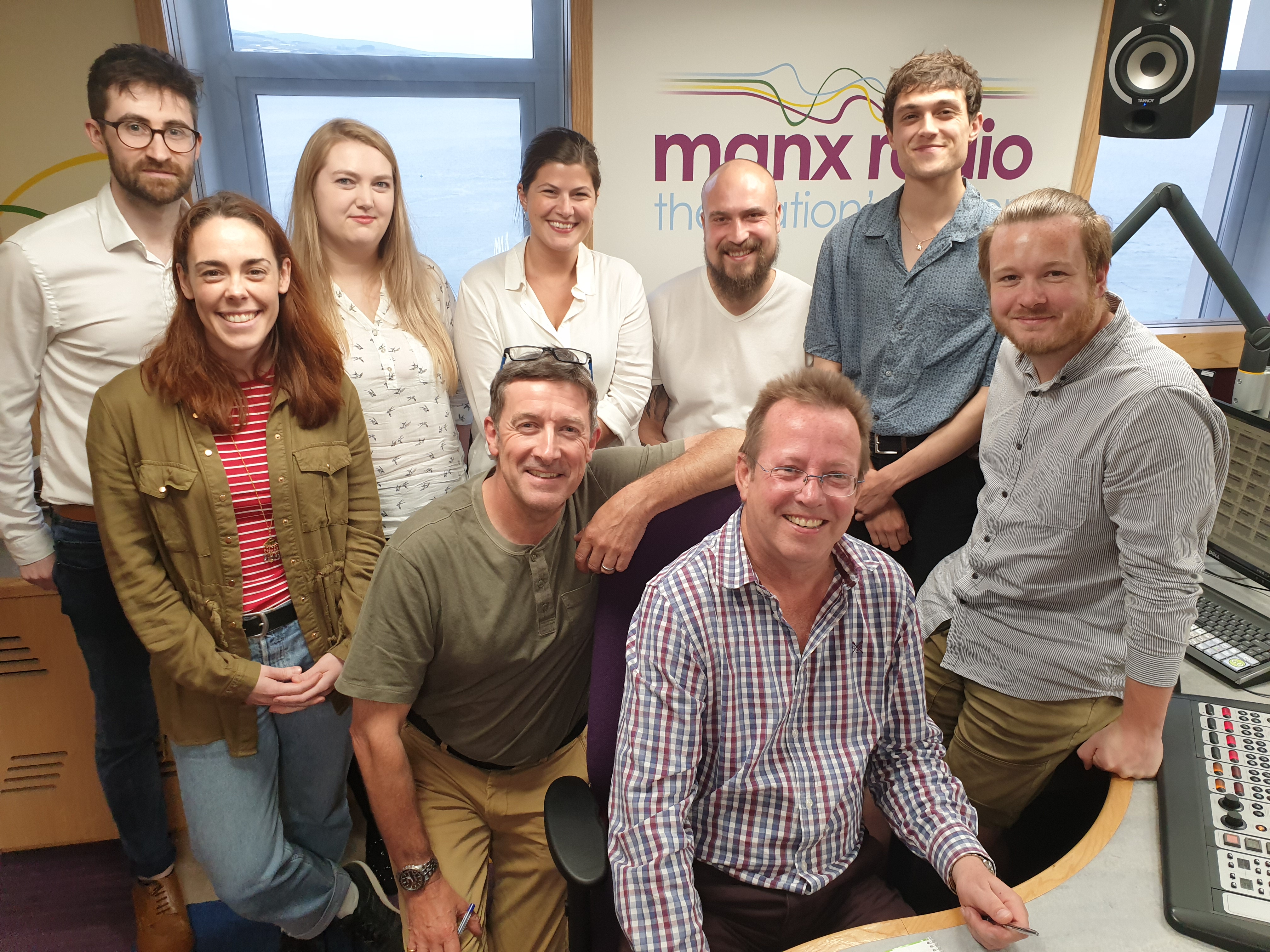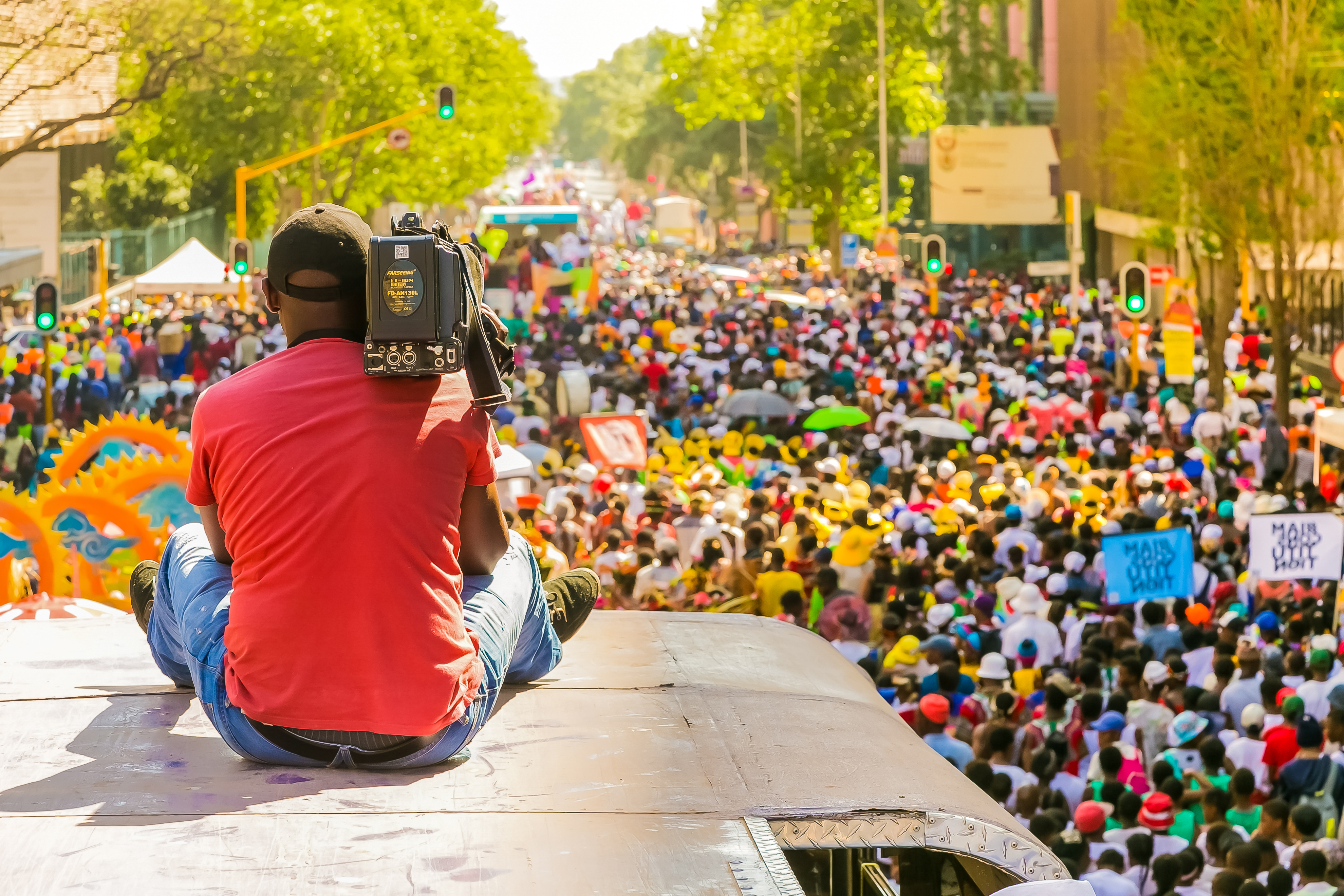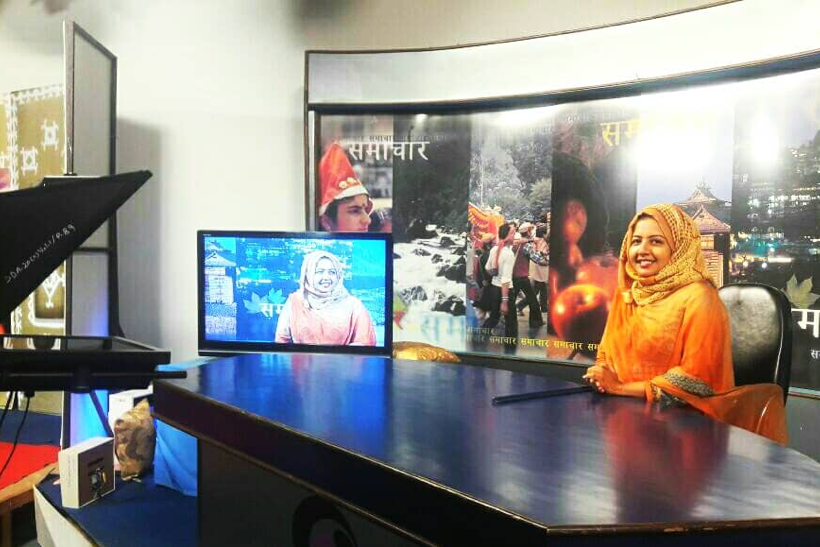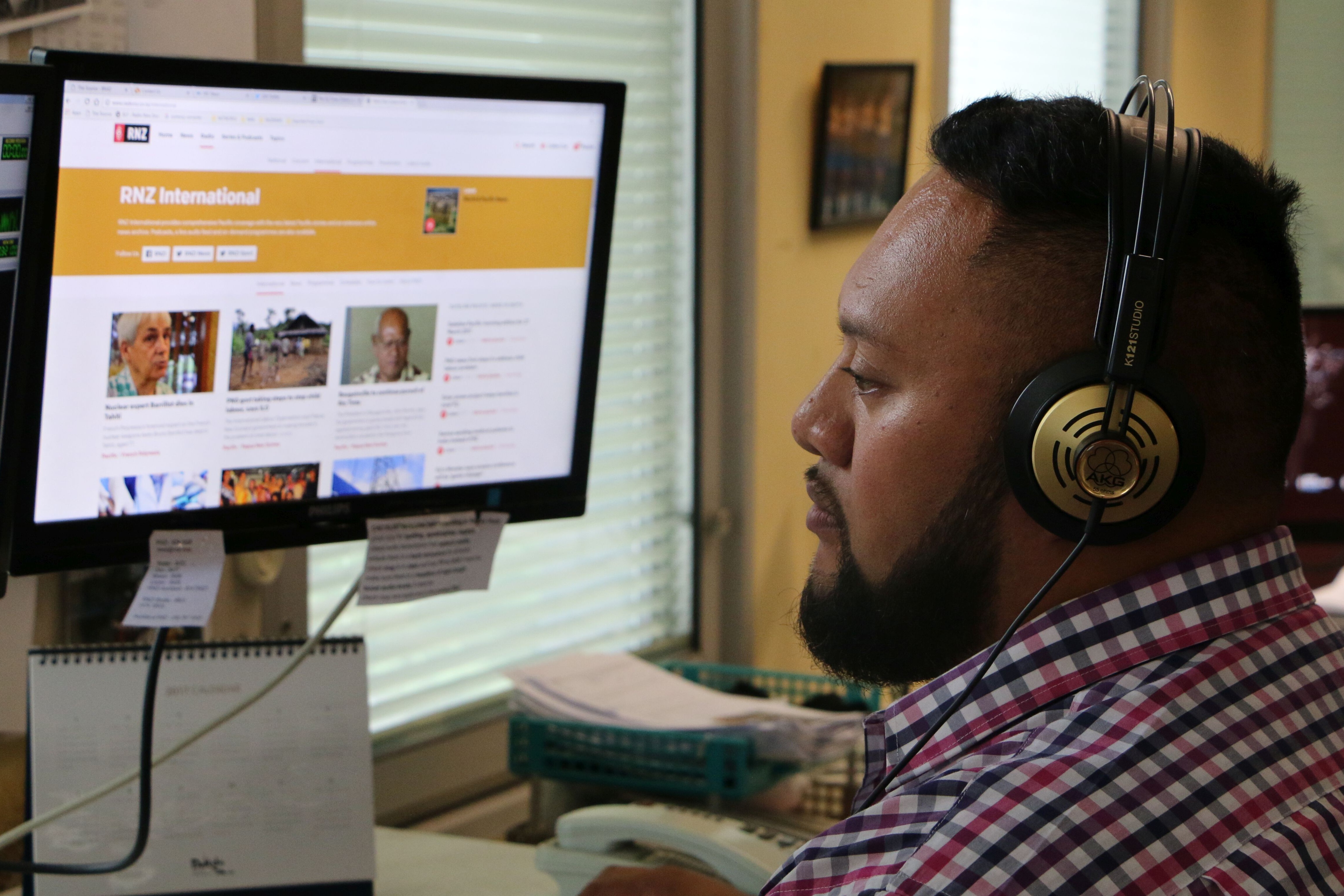From Mauritius to South Africa and Bangladesh to Australia, our Global Grantees have returned!
Formerly known as the PMA Travel Bursary scheme, the PMA Global Grant is a funding programme that enables employees from Public Media Alliance (PMA) members to travel across the globe to train and learn from other public media organisations.
This year our seven grants of up to £1,500 funded a wide range of projects, including a Bangladesh TV programme manager travelling to Australian public broadcasters ABC and SBS to learn new approaches to developing educational content; a reporter from Jamaican broadcaster RJRGLEANER exploring best practices in social media at CBC/Radio-Canada in Toronto; and a training programme for staff at the Isle of Man’s Manx Radio in media law and interview techniques.
Beyond the wider aim of developing knowledge and skills, the Global Grants provide a unique opportunity for grantees to network internationally and to share new skills within their own organisation. They also enable individuals to develop new ways of exercising freedom of expression and to facilitate work on projects that support the UN’s Sustainable Development Goals (SDGs).
The PMA Global Grant scheme would not be possible without the support and funding we receive from the BBC Grace Wyndham Goldie Trust Fund, which allows PMA to identify professionals and projects that benefit organisations as well as individuals. The bursaries enable participants to share knowledge and experiences as well as build fruitful relationships between media organisations and colleagues.
Read about our Grantees’ experiences below.
Global Grantees 2019
Ms. Most. Mahafuza Aktar Controller and Programme Manager
From Bangladesh Television (BTV) to the Australian Broadcasting Corporation (ABC) and Special Broadcasting Service (SBS)
Summary
Mahafuza spent two weeks in Australia and visited two different TV channels; ABC (Australian Broadcasting Corporation) and SBS (Special Broadcasting Services) Australia.
She met with ABC KIDS, ABC ME, ABC News, ABC iView, ABC KIDS iView teams and gathered knowledge about how they develop children’s educational programs.
Mahafuza gained experience on how to develop Educational content, work with new media technology and observed how traditional and new media interact to serve the audiences. In Brisbane she met with the ABC LANDINE RURAL PROGRAM team, regional news and technical team and visited the news studio.
At SBS Australia Channel she met with SBS ON DEMAND, SBS Outreach, NITV News, SBS Radio and SBS Learning teams and their studios.
“I am very satisfied by the way this experience supported the program’s objectives. I returned home with a fresh perspective on how to make good content on children and education. It made me more interested on how we can use new technology (new media like facebook and youtube/online contents) in education and children issues.”
As a program manager of Bangladesh Television(BTV) it is my responsibility to develop and promote my organization by implementing new techniques and technology. ABC (Australian Broadcasting Corporation) and SBS (Special Broadcasting Services) Australia have different educational and children channels. From these channels I have learnt how they develop educational contents and work with new media and technology.
This travel opportunity enhanced my capacity to understand educational content making and policy requiements to implement an educational block at BTV. It also enhanched my knowlage and practical experience regarding quality Children programs and ability to operate our six new TV stations and build a network and possible future collaboration with ABC for Kids programe exchance, coproduction.
I am very happy with the way my experience went. First of all, it was very insightful to compare and contrast the way BTV and other broadcasters work. ABC (Australian Broadcasting Corporation) and SBS (Special Broadcasting Services) provide audiences with access to extraordinary Australian stories and multicultural programs. When I visited SBS Australia Channel I met with SBS ON DEMAND, SBS Outreach, NITV News, SBS Radio and SBS Learn teams and their studios.
SBS Learn is educational channel, which is the home of educational resources and the platform for the teachers and students to share their works. School teachers and students get free educational resources from SBS TV series online.
I met with their team and learned how they made their content and gathered valuable knowledge from them. ABC has different kinds of specialist channels like ABC KIDS, ABC ME, ABC News, ABC iView, ABC KIDS iView. I visited the ABC KIDS channel to learn how they develop their KIDS contents and make various programs. I also visited their studio, editing panels, graphic department and also met with the production teams to develop our kids’ programs.
I met with the Head of Children content and visited the studio and saw one of their internal children show in production. I also met with their Series producer for the program Giggle & Hoot.
ABC ME offers a distinctly Australian voice to its viewers plus the very best content from around the world. ABC ME hosts an Educational block to both primary and secondary students and their teachers, covering all key learning areas.
I also visited and met the team who produced educational contents for children and teachers, how they work with the new media and technology and policy requirements to implement educational block. I observed how traditional and new media interact with regard to audiences.
BTV wants to ensure quality education for all through TV and new media. So, I hope that this visit will help me to achieve our goal. BTV is now working for to setup six new regional TV stations and commit to digitalization.
ABC has many regional TV stations. I visited the ABC TV headquarters at the Ultimo Centre, Sydney and one state station in South Brisbane to see how the station make their own programs.
In Brisbane I met with the ABC’s LANDINE RURAL PROGRAM team, regional news and technical teams and visited the news studio. The executive producer of this program exchanged her thorough knowledge about the program. The head of news Genevieve Hussey provided information on how they cover regional news and collaborate with their main station. I also met with the production and online technical teams and got to know their techniques.
I can conclude that ABC & SBS are very good in producing educational and children-orientated programmes. Their online content was also very good and I was impressed with their work and the knowledge I gathered from them will be helpful for my own organisation.
I am very satisfied by the way this experience supported the grant objectives. I returned home with a fresh perspective on how to make good content about children and education. It made me more interested on how we can use new technology (new media like Facebook and YouTube) in education and reporting children’s issues.
After returning to my organisation I prepared a report to share my visit details with my colleagues. We had great discussions on the similarities and differences in the way we work with my colleagues and higher authorities. I am sure that I will be able to convey my newly gathered knowledge and experiences to my team. I also believe that as a team we will be able to develop our organisation by implementing new techniques and technologies in producing and broadcasting children’s and educational programs across TV and new media.
I am preparing to run a workshop and present to my colleagues at BTV to share with them how ABC & SBS plan children’s education for TV and social media.
By developing an educational unit, we will achieve quality education for all and promote lifelong learning by educational programs through traditional and new media. Since Bangladesh is a developing country the adaptation of new technologies will highly beneficial for our society which will make the way to achieve sustainable development goals.
I was able to learn a lot about how ABC & SBS works and retuned to my station with a new perspective to share with my colleagues.
This travel grant helped me to gain vital knowledge and experiencs, develop my skillset and gave me the opportunity to share and network. During my visit I promoted my organisation and exchanged my knowledge about children and educational programs with ABC.
SBS radio Australia has also started online broadcasting and covering news on Bangladesh affairs. BTV is hoping to collaborate with SBS Radio to broadcast online news and an SBS educational programme.
This grant was highly beneficial for upgrading my organisation’s programming for children. I am now better equipped to develop quality children’s programs and educational content for primary and secondary students and teachers. Also, it helps me to build up our quality and management policy for our new six TV stations.
I wish to thank Grace Wyndham Goldie Trust fund, Public Media Alliance (PMA), SBS and ABC for helping me to achieve this great professional opportunity.
Mr. Shannick Dawkins Reporter and Producer
From From RGRGLEANER Communications Group, Jamaica to CBC/Radio-Canada, Toronto
Summary
Shannick spent a week at CBC/Radio-Canada in late June 2019, learning about their social media operation. CBC was the perfect environment for him to learn about social media as he felt the organisational structure was similar to his own at RJRGLEANER Communications Group, Jamaica (RJR) . Like his own organisation CBC too worked on multiple platforms – radio, TV and digital communication services. However, as a more established and resourced newsroom, CBC was able to furnish him with the necessary information and skills needed to improve social media operation at RJR.
“The experience from CBC has benefitted my newsroom significantly since it has started discussions on improving our social media presence.”
I gained significant insights regarding best practices in social media journalism and was furnished with a policy that guides journalists in using social media. However, CBC was not able to provide substantial information on how it gets team members to use social media for journalistic purposes as it does not have an issue with its employees being unwilling to use digital media.
I feel to a great extent the activity supported my objectives as CBC has courteous and knowledgeable staff who assisted me with meeting my goals. I learnt that you must have an understanding of the demographics of the audience as this helps curators to create content that appeals to them to increase engagement (followers, comments and likes). One other thing was to not just post/tweet texts but also to use images or videos with words/captions. This will attract more users to the social media network. I have also learnt how to use hashtags to help social media users to easily search for content and to participate in conversation.
The digital team uses Buffer, which is a software application for web and mobile, designed to manage social network accounts by providing the means for a user to schedule posts to Twitter, Facebook, Instagram, and LinkedIn, as well as analyse their results and engage with their community.
CBC uses a video editing software to create videos for their online platform. These videos are created with certain specifics that allow persons to view it on their phones easily. I have been given the specifics, which I will pass on to our management team. Additionally, the social media teams for CBC Toronto and CBC National collaborate to reduce the need for duplication and to get more results from its employees. It is therefore my view that the RJRGLEANER Communications Group could benefit from this by twinning the Gleaner’s social media team with the RJR News centre social media team. I was also able to analyse CBC’s social media content and was supervised to tweet from my own Twitter account to see how best I comprehended what I was being told.
I have a new outlook on the usage of social media as social media can be used to host programmes as was evident at CBC when they used Twitter to host a show for the elections. I have also learnt that breaking news stories are first posted on the website and then shared on social media. When covering live stream, they engage audiences by telling them what the live coverage is and telling them thanks for watching, also writing out some of what was said, monitoring the site to ensure that inappropriate and defamatory comments are not deleted/hidden on the social media sites. I have attended meetings and contributed to discussions. Additionally, I felt like I was a part of a global community of journalists and this experience was simply awesome.
The project has resulted in a draft social media policy for our newsroom. The social media policy provides guidelines for how journalists affiliated with the company should conduct themselves, engage with the public and how management should deal with journalists found in breach of the policy. Additionally, it also recommends workshops to familiarize journalists on the policy and suggestions for getting more journalists engaged in social media.
My main outcomes have been:
• Discussions are underway with a view on implementing some of the recommendations to streamline our social media operations.
• I was also able to interview Jamaicans living in Canada and have been working on a feature for it to be aired soon on radio.
• I have also used the opportunity to network with journalists at CBC.
• Cultural exchange as CBC has a diverse set of employees in its newsroom in contrast to my company in Jamaica
I believe the visit was more beneficial to me than it was for CBC-Radio Toronto. However, we both learnt about each other’s newsroom culture. The experience from CBC has benefitted my newsroom significantly since it has started discussions on improving our social media presence.
There are plans to follow up with CBC-Radio Toronto as the RJR News centre continues to make adjustments to our social media operations and consider the recommendations arising from my trip. The follow up may include getting further particulars to guide us with the implementation of upgrading our social media operations.
I wish to thank the Public Media Alliance, Grace Wyndham Goldie Trust fund, CBC-Radio Toronto and the RJRGLEANER Communications Group for adding to my professional development.
Ms. Marceline Evenor Chief Editor
Marceline attended a PMA workshop in Windhoek, Namibia to develop a set of guidelines on the use of social media for broadcasters across Southern Africa.
The workshop was also an opportunity for media professionals from different countries to discuss how, as broadcasters they can collaborate and exchange news stories told from their own perspectives, as these stories do not get the coverage from the big international news channels and agencies. The workshop gave Marceline the opportunity to network with journalists and programme makers from Botswana, Mozambique, Lesotho, South Africa, Seychelles and Namibia, the host country.
“My experience has been very positive, and I will encourage SBC staff, journalists in particular, to apply for the Global Grant so that they are exposed to newsrooms and ways”
Social Media, especially Facebook and Twitter, have become platforms where people are telling their stories as well as making their voices heard on issues that impact their daily lives. These platforms are also virtual venues for debates. People will like or dislike information they are getting from news organisations, churches, politicians and are not restrained from letting these sources know their views.
As journalists we should be aware of how to engage with our viewers, listeners or readers in all situations, be it in our personal or professional capacity. After all, to them we are always linked to the media house/organisation we work for.
During the three day workshop, the two facilitators, Robert Freeman and Emily May Brown gave us the necessary tools and knowledge to distinguish newsworthy information from other “useless or misleading” information propagating on social media platforms; from the importance of having security in complexity passwords, doing advanced search on Google and other search engines so as to get more up to date and credible results, spotting fake news to the importance of having a clear structure to verify user generated content before using it as news stories or in other content for broadcast. We were shown a video on BBC’s verification structure and this was very enlightening.
Participants were also put into groups to brainstorm and come up with draft guidelines which were then discussed and compiled as recommended guidelines for the final draft.
The workshop was also an opportunity to get to know other journalists from South West Africa, discuss how our organisations are “working with” new media, how we are engaging with the audience, learn best practices when it comes to breaking news and most importantly, forge new connections so that we can exchange news stories and have credible contacts in different countries.
During the three-day workshop I also came to better understand the importance of engaging with the audience on social media platforms, the structure we need to have in place to cater to new media and the importance of giving timely feedback. We are already discussing the need to have an online editor at SBC.
Another benefit of the workshop is that I now have people I know who I can contact for first-hand information and stories. For example; there is the regional television programme Eye on SADC, which SBC will be contributing to.
At the workshop I discussed with Slaide Muthemba from Rádio Moçambique an idea for an exchange story regarding a donation from a church group, CARITAS Seychelles to CARITAS Mozambique following the cyclones that hit Mozambique. This should be happening in the next few weeks and is a direct outcome of attending this workshop.
Another outcome of the activity is a set of social media guidelines that my organisation can adapt to complement the in-house social media policy.
I take this opportunity to thank the Grace Wyndham Goldie Trust and Public Media Alliance for the financial assistance which has allowed me to participate in such an important event.
My experience has been very positive, and I will encourage SBC staff, journalists in particular, to apply for the Global Grant so that they are exposed to newsrooms and ways of working so that on their return they make use of their experience to enhance our output.
Mr. Davendra Lutchmadoo Reporter/Producer
From the Mauritius Broadcasting Corporation (MBC) to the South African Broadcasting Corporation (SABC)
Summary
Davendra Lutchmadoo spent five days at the South African Broadcasting Corporation (SABC) during the General Election which was held on 08 May 2019. As a reporter/journalist he was able to attend national editors’ meetings, have sessions with News Researchers, Journalists and Technical Crew. He also had full access to the Independent Electoral Commission (IEC) nerve centre in Pretoria where all major broadcasts were being made using the SABC Outside Broadcasting Facilities. He was able to participate actively in the reporting of the General Election and met members of various political parties.
“The way journalists work at the SABC is different to that of the MBC journalists and I think this experience will help me be more like the South African journalists by changing the perspectives and angles of stories.”
First of all, I was very surprised to get a very warm welcome and it was very easy to make friends, everyone was ready to help and each day I got lots of experiences. The SABC is very massive, I was very impressed by all the facilities it provided. All the people working at the SABC are professionals, they were well-trained, and they know their work well, they were always ready to face new challenges. The objectives that I had set before going there was achieved more than what I was expecting. The SABC gave equal opportunities to all political parties. The election and its coverage were free and fair.
The General Election in Mauritius will most probably be next year and what I have learned and experienced in South Africa, will be shared with my colleagues and other media professionals. I had interactions with elections experts who gave me valuable advice and speaking with them has increased my knowledge. I have been able to get lots of contacts which I will use in my future work. The way journalists work at the SABC is different to that of the MBC journalists and I think this experience will help me be more like the South African journalists by changing the perspectives and angles of stories.
I think both MBC & SABC benefitted from my visit, as I was able to learn a lot on how to become more multitasking and how to use new technologies and social media to enhance reporting. Through me the SABC can contact the MBC for further collaboration. I was able to explain about how we create stories, which they found very interesting.
I have shared my experiences with my colleagues and have explained how they need to change the way they work to become more professional, multitasking and versatile which they favourably accepted.
I wish to thank the Grace Wyndham Goldie Trust and the Public Media Alliance for making this exchange possible. I also would like to thank MBC and the SABC for giving me this opportunity to grow professionally and for helping me feel at ease.
Ms. Palinyane Ramakoro Senior News Reporter and Presenter
From the Lesotho National Broadcasting Services (LNBS) to Mauritius Broadcasting Corporation (MBC)
Summary
Palinyane Ramakoro joined the Mauritius Broadcasting Corporation (MBC) for some hands-on training in their daily operations with specific focus in the news and current affairs department. Here she gained invaluable experience, not only in learning how other organisations handle government pressure and cover topics of public concern – such as climate change – but also by participating in the news production process.
“I have learnt new techniques of conducting news briefings, editing news, sourcing out news material from other news agencies, co-presenting news, the length of news items and the new and classy technology for the studios (television and radio)”
I wanted to know how MBC covered and disseminated to the public issues of concern like; climate change and the Sustainable Development Goals (SDGs). And how they handle a pressure from government on what to and what not to report.
I felt I achieved all my objectives in that I really got what I expected from the beginning of my proposal to PMA. I wanted to gain new experience and see how other public broadcasters operate on a daily basis and this I did. MBC gave me the opportunity to assist and participate in the news production from planning to filming and the final stage – broadcasting on news presentation on both radio and television.
I indeed cherish the journalistic experience shared to me by the news and programmes teams at MBC. I have learnt that MBC has a programme on environmental issues to inform and sensitise the audience on how to care for the environment in the wake of climate change phenomenon. While I was there, there was a news story on a natural disaster as soon as it happened. I took part in the coverage of a news item on the volcanic eruption which occurred in the sea. We interviewed the disaster management council on its impact and whether people can expect such incidences in Mauritius.
I also learnt that MBC is a parastatal, but it is only owned by the government. However, they get 100% of their funding from advertisement and the selling of airtime and licenses to residents. So, I observed that the pressure from the government in terms of news coverage is not that much compared to my organisation, but as the government owns them, I think there still is some [control over] what they cover and do not.
This activity has supported my overall personal development. I gained international experience, knowledge and new skills. I also had an opportunity to interact and network with colleagues in other country and to know how I can disseminate information about SDGs to the public using the media.
I have learnt new techniques of conducting news briefings, editing news, sourcing out news material from other news agencies, co-presenting news, the length of news items and the new and classy technology for the studios (television and radio)
My tour to MBC is very beneficial to me as a person and employee at a government owned broadcasting service. It has really contributed in meeting my quest to improve my career in media industry.
I would like to acknowledge and extend my sincere appreciations to Public Media Alliance PMA, Mr. Vijay Kumar Parmessur- Director General, Valerie Lassemillante- Senior Customer Care Officer, management and newsroom team at Mauritius Broadcasting Corporation MBC and also my organization, Lesotho Broadcasting Services LNBS, for giving me the opportunity to engage in this activity in Mauritius.
Mr. Randika Raveen Sapuarachchi News Editor/Anchor
From Capital Maharaja Organization Ltd to the 5th ABU Media Summit on Climate Change Action and Disaster Preparedness in Nepal.
Summary
Randika spent three days at Katmandu, Nepal for a summit on Climate Change and disaster preparedness for the media. As a news reporter for the News 1stin Sri Lanka, this was an opportunity for him to understand and learn about media solutions for a sustainable future, saving lives, building resilient communities and a vast knowledge about disaster preparedness.
“I was able to learn a lot on how to prepare people for a disaster and also share how we have covered disasters in my media stations. I feel I now have the knowledge to share with my organisation on how to properly report a disaster.”
I was very satisfied in the way this experience supported the program’s objectives. I returned home with a fresh perspective on how a media organisation can work to protect the people. This also allowed me to have a first taste of attending international summit, where I could meet, discuss and learn about climate change issues that affect many Asian countries.
In the summit we had 10 sessions about climate and disaster literacy and working together to build resilient communities. All sessions were conducted by specialists who representing their countries. They shared their own experiences and activities with the attendees. And, they also gave us good guidance and advice on how the media can prepare people in a disaster situation. We also discussed the challenges and successes in climate change adaptation and disaster risk reduction for achieving the sustainable development goals, how climate change effects society, communication challenges and solutions, partnering for building knowledgeable resilient communities, the role of media during a disasters and the readiness of our organisations for when a disaster hits.
I believe the benefits of attending this summit were very positive for both parts. I was able to learn a lot on how to prepare people for a disaster and also share how we have covered disasters in my media stations. I feel I now have the knowledge to share with my organisation on how to properly report a disaster.
Upon returning to my home station, I have been interviewed about my experience in this summit by our management. As well as this we also launched a flood relief campaign in most affected areas in Sri Lanka called ‘APADAWATA PERA SUDANAMA’. So, the knowledge got from this summit was a great help us to improve our campaign.
Siobhann Tighe (BBC Producer) & Prod. Claire De Than
From the BBC and City, University of London to Manx Radio, Isle of Man
Summary
Siobhann and Claire travelled to Manx Radio to train seven journalists in interview techniques and media law. The trainers successfully imparted training about getting the very most out of radio interviews, whether they are conducted in the studio or on-location and matching real life journalistic scenarios to the legal aspects of the media industry.
Some of the journalists were new to the profession and the training imparted valuable information regarding the role of radio and reporters in small island communities such as the Isle of Man.
“The intention of the training is not that they replicate the ideas that they’ve seen and discussed in the examples provided, but are now more confident to adopt an approach that is correct for the situation they are in.”
We split the training days into two halves, with Claire taking morning sessions and me taking the afternoon sessions. However, I attended the morning sessions so that I could match real life journalistic scenarios to the legal points which Claire was teaching. This provided important and relevant context.
Our objective was to pass on hints and tips about getting the very most out of your radio interviews and how media law works and its relevance to the work they do citing regional examples.
The training was grounded in real-life experiences. The radio interviewing training was structured around three recent high-profile radio interviews. Two of the interviews were particularly memorable but all were tough and rigorous. As a group we dissected them from two perspectives: the interviewer’s and the person being interviewed.
The interviews were chosen to explore how the media can hold powerful people to account. But they also highlighted the need to do your research and getting to your interviewee to answer the question.
The workshop covered the below areas
• Knowing your brief and the importance of preparing
• The different style of interviews, e.g. information gathering, personal testimony, inquisitorial, live or pre-recorded, in-depth or needing just a clip
• Different tones of interview, e.g. combative, sensitive, relaxed, celebratory
• Forthcoming legal changes to Media Law.
• Overview media law & ethics
• Factors at play in an interview, e.g. how much time do you have, where you’re doing it, how much access you have
• Having the confidence to “throw away pre-planned questions” and knowing how to pick up organically on what you’re hearing
• Controlling the interview and having interrupting techniques to hand
• Selecting open questions and having stock “get out of trouble” questions and prompts to hand.
• Privacy
• Contempt of court
• Reporting restrictions
• Light and shade in interviews including humour, to keep your listener interested.
• Picking up on non-verbal cues, i.e. body language and eye contact
• Importance of maintaining eye contact and sharp emotional intelligence
• Commanding your space and knowing your equipment
• Being your authentic self and using language natural to you.
• Basic approach of media law,
• Defamation
• Laws of British and Commonwealth jurisdictions
• How journalistic law on the Isle of Man varies to the rest of the UK
There were significantly many group discussions about the challenges of faced by Manx Radio in a tight-knit community and in a place where everyone knows each other or may be related to each other in some way. There was discussion on the conflict of interest in interview scenarios and how “duty of care” issues are often intensified for a radio station in an island context, compared to one serving a much larger population.
An immediate outcome from the training was that afterwards the team was really energised and felt positive about their roles. The hope is that they will remember some of the tips and hints and see how they can be adapted to their own scenarios. The intention of the training is not that they replicate the ideas that they’ve seen and discussed in the examples provided, but are now more confident to adopt an approach that is correct for the situation they are in.
The Public Media Alliance is grateful to the Grace Wyndham Goldie Trust for their continued support for these grants and for supporting the values of Public Service Broadcasting globally.
Interested in applying for a PMA Global Grant? Find out more via the link below
